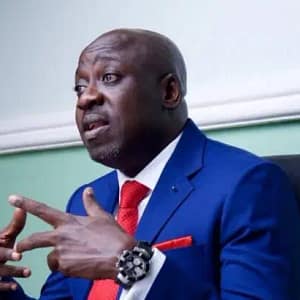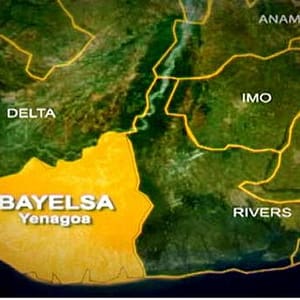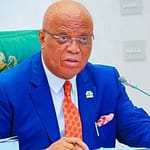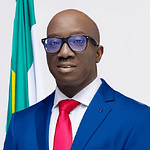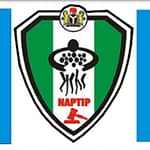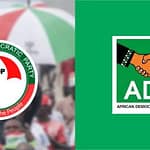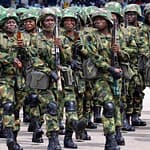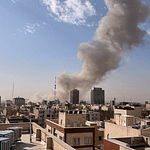Abuja, July 2, 2025 — The Minority Leader of Nigeria’s House of Representatives, Hon. Kingsley Chinda, has described the monetisation of political party nominations as the “most corrupt phase” of the country’s electoral process.
Speaking during a keynote address at the public presentation of the “Cost of Politics and Political Inclusion Report” by the Westminster Foundation for Democracy (WFD), Chinda questioned the astronomical price tags attached to party nomination forms.
“Must party nomination forms cost millions of naira?” he asked. “What exactly are we pricing?”
The Real Barriers to Political Participation
Chinda, who represents Rivers State, lamented that the financial burdens placed on aspirants have created a system where only the wealthy can participate meaningfully in politics—effectively locking out young people, women, and everyday Nigerians.
He emphasized the urgent need for internal party reforms, including:
- Digital voting systems for party primaries
- Transparent delegate selection
- Strict caps on internal campaign spending
“We already have the laws. What we lack is enforcement,” he added, pointing to consistent breaches of the Electoral Act’s spending limits (N70m–N100m) without meaningful consequences.
A Call for Electoral Accountability
To combat electoral corruption, Chinda proposed:
- The creation of an independent Electoral Offences Commission
- Real-time tracking of campaign spending
- Mandatory public declarations of funding sources
- Penalties for offenders, including disqualification from future elections
“Moving beyond paper compliance is critical,” he stated. “We must address the high cost of politics to open up our democracy.”
WFD Report Highlights Impact on Women and Inclusivity
In his opening remarks, Adebowale Olorunmola, Country Director of WFD Nigeria, echoed Chinda’s concerns. He called the rising cost of electioneering a “direct threat to democratic inclusion”, especially for women and underrepresented groups.
“Our democracy thrives when diverse voices are heard,” Olorunmola said. “But the cost of politics is silencing too many people.”
The WFD’s report provides fresh data and insights into how financial gatekeeping undermines participation and representation in Nigeria’s political space.
A Shared Responsibility to Reform
Both Chinda and Olorunmola urged political stakeholders to:
- Prioritize enforceable reforms
- Reduce entry barriers for aspiring leaders
- Foster a system that reflects Nigeria’s full diversity
“Together, we can shape a political landscape where everyone—regardless of gender or background—has a fair chance to participate,” Olorunmola concluded.
Quick Takeaways
| Issue | Proposed Solution |
|---|---|
| Nomination forms costing millions | Regulate and cap fees |
| Internal party corruption | Introduce digital primaries and transparent processes |
| Campaign overspending | Real-time expense tracking, enforce limits |
| Lack of enforcement | Establish an Electoral Offences Commission |
| Low female/grassroots participation | Remove financial barriers and ensure inclusivity |
Conclusion: With 2027 elections approaching, Nigeria faces a critical choice—continue the cycle of money-driven politics, or make space for merit, diversity, and democratic integrity.

